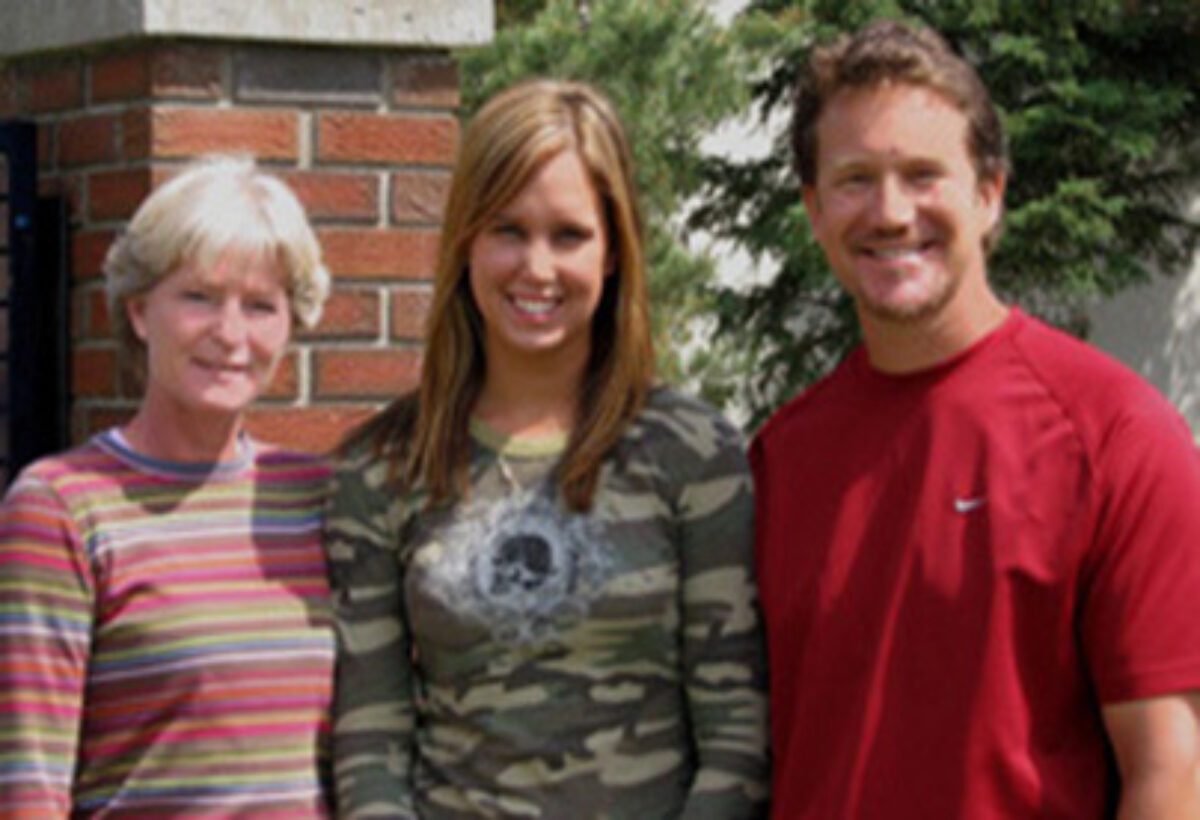Alberta teachers save student’s life

Mandi peddled her bike hard as she raced past her classmates back to her high school during gym class that hot spring day.
It was just before noon in Barrhead, Alberta – on what would’ve been her late mother’s 40th birthday. And while a then 15-year-old Mandi craved the thrill of beating the other girls in this last leg of their cycling unit, there was another reason why she was in a hurry to get back.
Mandi – an asthmatic – was having trouble breathing and needed to get to her inhaler.
“I had to stop every few minutes – my mouth was so dry and I had no water,” says the teen, who was diagnosed with asthma at 13 but had never experienced anything like this before. “I was coughing up blood from breathing so hard. Students were stopping to ask if I was alright and I would say yes – I’m really stubborn.”
When she finally made it back to the gym locker room, Mandi says she was breathing as heavily as when she had been peddling.
Her physical education teacher, Gayle, was in the gym preparing for her lunch-time intramural practice when a student alerted her to Mandi’s condition.
She found Mandi sitting on a bench, leaning over in distress. Her breathing was laboured and irregular and there were a few other students in the room. She fought to stay calm.
“Not everyone in the school has emergency training. You hope you never have to use it,” says Gayle, who learned how to respond in an emergency through the ACT High School CPR Program.
Gayle knew Mandi was asthmatic. She helped her take a few puffs of her inhaler. Another physical education teacher, Steven, rushed over to help. He had also been trained through the ACT Program at Barrhead Composite High. He called 9-1-1 and quickly hurried back.
Mandi was getting worse.
“I took my inhaler, drank some water, sat back down – nothing seemed to work,” says Mandi. “I put my head between my hands….the bell rang…that’s all I remember.”
Mandi stopped breathing.
Gayle laid her on her side and checked for signs of life – her pulse was weak. Steven began performing artificial respiration (AR).
“I was scared at the time, frightened and worried that she was going to die,” says Steven, who had never performed the technique before. “I was amazed at how Mandi’s chest expanded when I blew in – I could see it rise several inches.”
The school called Mandi’s grandmother, Ruby, who had been taking care of Mandi and her 16-year-old brother Joey ever since their mother passed away from heart failure when Mandi was just seven years old. They told her to come quickly.
“I was in the garden when the school called to tell me to come right away because Mandi was unconscious,” says Ruby. “I made my way to the school – it’s only a few minutes away – and I could hear them in the room working on her. I cried and prayed more than anything…she’s so young.”
The paramedics arrived and gave Mandi oxygen and CPR. They took her to Barrhead Health Centre. Mandi says she awoke to a very concerned grandmother and brother.
“The first thing I remember is that my chest hurt from the CPR and my family looked so upset,” says Mandi. She was released later that night and went back to school a couple of days later.
Ruby says she is forever grateful to Gayle and Steven for bringing her granddaughter back to her.
“Thank goodness for the teachers who knew what to do,” says Ruby. “It’s the greatest thing they could have done for our family.”
Today, at 18, Mandi says this experience has changed her life forever.
“This whole thing kind of opened my eyes. I used to have nothing to work towards,” says Mandi. “I came so close to dying. I don’t want to die young like my mom.”
She is now looking forward to going to college for a business degree in the fall.
Steven says helping to save Mandi’s life has reinforced for him the importance of CPR and the value of the ACT High School CPR Program – not just for students, but for teachers too.
“It’s given me motivation to keep up with my training,” he says. “The result could have been irreversible. That’s not a burden I would want to carry as a teacher or a parent.
“I would expect the same from teachers taking care of my children.”
The ACT High School CPR Program was made possible at Barrhead Composite High thanks to the generous support of Alberta Education and the STARS Foundation (a founding provincial partner in Alberta), which enabled the donation of mannequins, teacher training and curriculum resources.
The Advanced Coronary Treatment (ACT) Foundation is an award-winning, national charitable organization dedicated to establishing CPR in high schools across Canada. ACT raises funds to donate mannequins, teacher training, manuals and other materials to schools, and guides schools in program set-up and long-term sustainability. Teachers teach CPR to their students as a regular part of the curriculum. Over 900,000 youth have been trained in CPR through this lifesaving program to date.
Core partners supporting the program in Alberta and throughout Canada are companies in the research-based pharmaceutical industry: AstraZeneca, Bristol-Myers Squibb Canada, Pfizer Canada and sanofi-aventis. They provide ACT’s sustaining funding and are committed to the Foundation’s national goal of promoting health and empowering Canadians to save lives.
